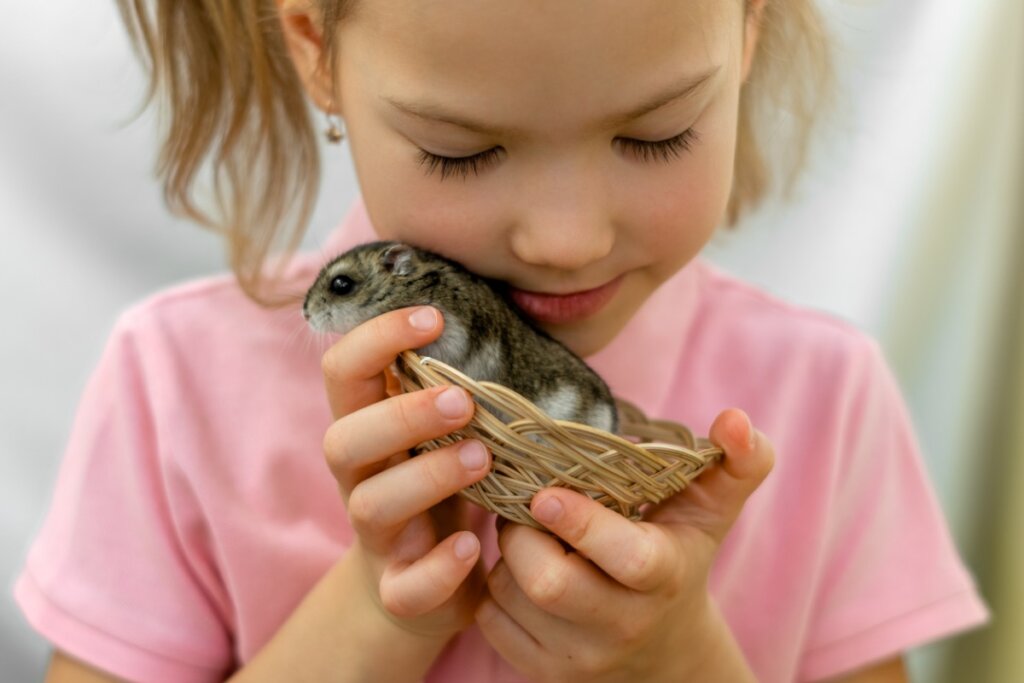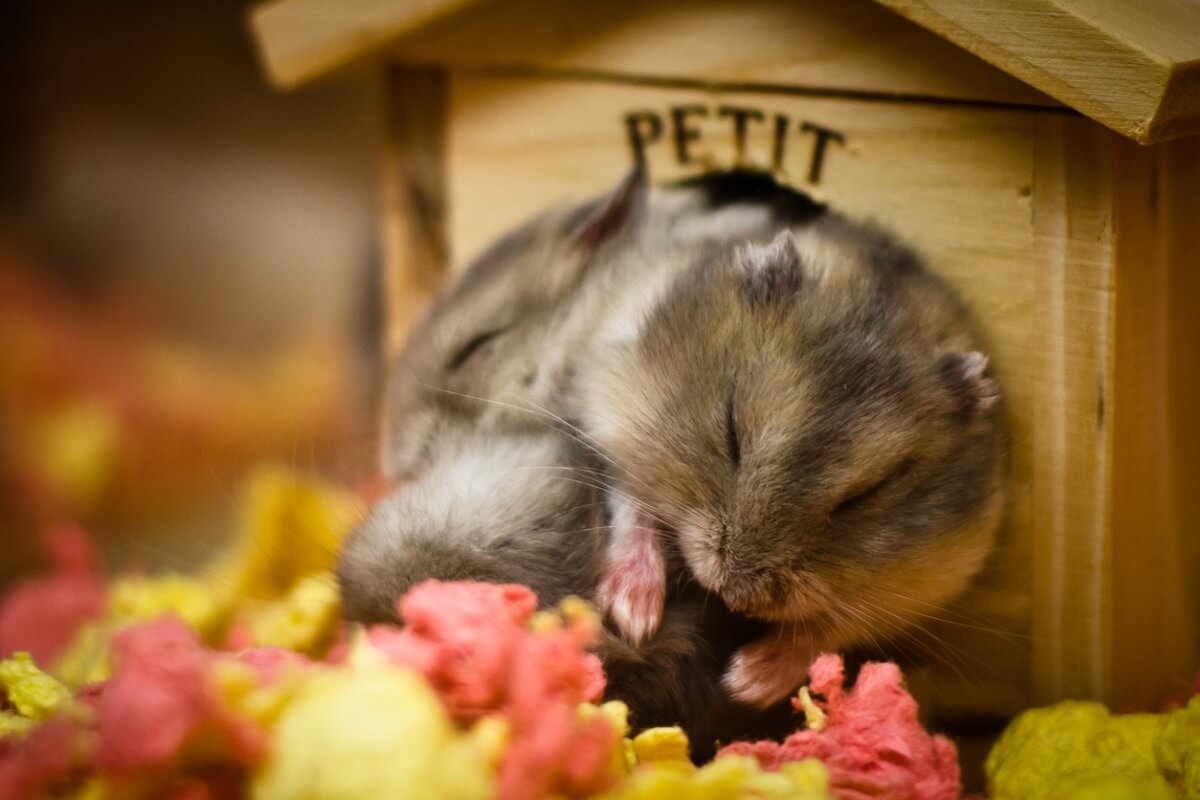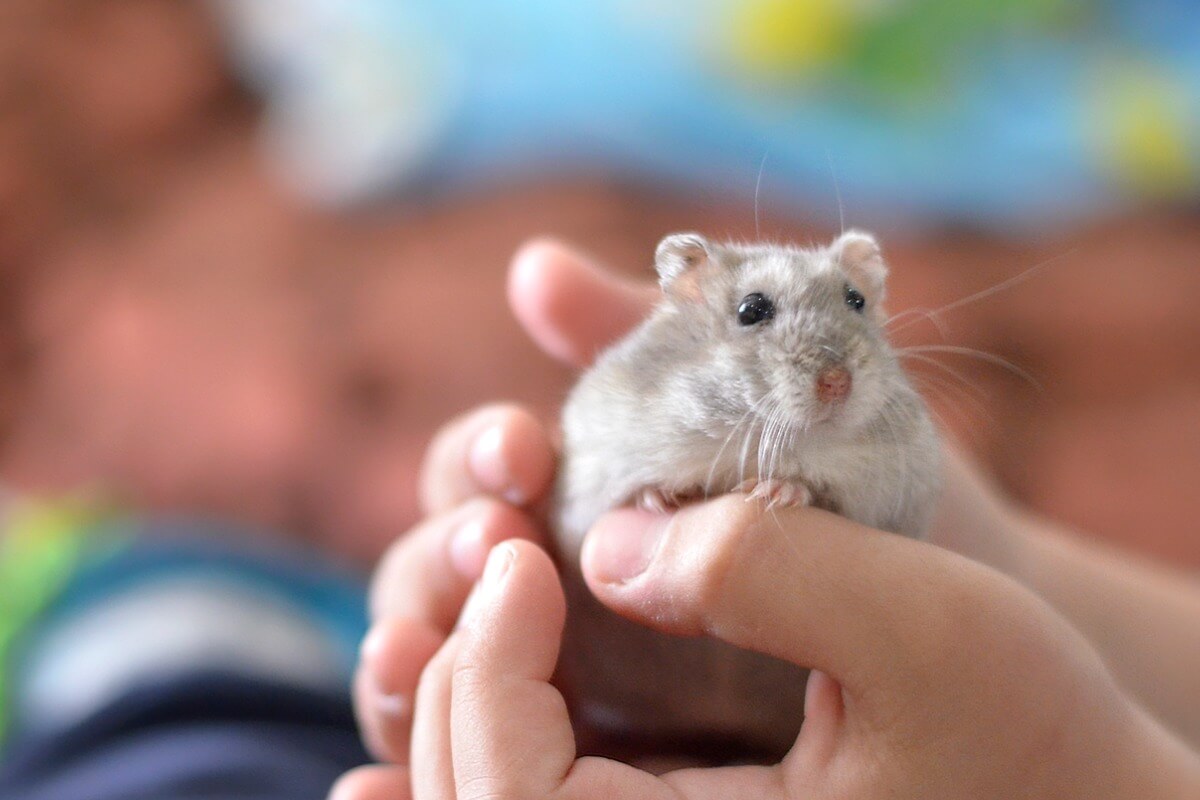How to Tell if Your Hamster Is Happy!

It’s relatively easy to recognize happiness in certain animals, such as dogs and cats, animals that have been around humans for a long time. However, with others that have undergone the domestication process more recently, the signs are less intuitive. Find out how to tell if your hamster is happy in today’s article!
Hamsters are one of the most popular and, at the same time, least studied pets in the field of behavior. That’s why, despite all your dedication to their care, you may start to wonder if your hamster is happy. In this article, we’ll tell you all about some behavioral signs directly linked to the welfare and happiness of your small rodent, so don’t miss it.
How can I know if my hamster is happy?
Hamsters are shy and wary animals, as they’re part of the diet of many small predators. In addition, their lifestyle in the wild is solitary, and their social communication is rather sparse and unintuitive to human eyes.
However, the overall well-being of a hamster living in a home is directly related to its happiness. Based on this idea, here are some unmistakable signs that your small rodent is happy with life!
Hamsters are prey in their natural environment. For this reason, they tend to be suspicious and wary of all species apart from their own.
It eats, drinks, urinates, and defecates normally
In general, stress and discomfort have a direct reflection on the physiological functions of any animal. This means that if a hamster is living in a constant state of fear or anxiety, then sooner or later its appetite, thirst, sleep, and the normal functioning of its digestive system will be affected.
In addition to this, continued states of stress will often lead to health problems. These emotional conditions will cause the rodent to stop eating or even drinking, which, in turn, will lead to urinary and digestive disorders.

Your hamster grooms itself
Hygiene is a very important part of your small rodent’s daily life. Grooming is a way to keep clean, but also to calm down and feel at ease. If you observe this behavior, then the hamster can’t perceive danger around it. Remember that most animals are at their weakest when cleaning and grooming.
It stretches and yawns
This may seem like an uninformative gesture, but it’s a sign that the hamster is comfortable and well-rested when it sleeps. A stressed or unhappy rodent stays alert at all times and sleeps lightly, so it won’t stretch after waking up from its sleep.
It’s active
Lethargy is never a good sign in an animal. The most normal thing for a hamster is for it to move around its cage, to want to go out to play in the house when it can, to build a nest, and so on. If, on the contrary, it stays in a corner doing nothing all day, it’s likely to be suffering from a mental or physical health problem.
Hamsters are nocturnal animals. Therefore, they rest during the day and become extremely active at night.
Looks good
General appearance is also a good way to tell if your hamster is happy or not, as well as its health. A happy, healthy rodent has a shiny, fluffy coat, a clear gaze and its little nose is constantly moving around sniffing its environment.
The hamster plays and explores its environment
A rodent that’s afraid or in poor health doesn’t play or interact with objects in its environment. In addition, when you want to take it out of its cage to do its daily exercise, it’ll be willing and happy to do so.
It lets itself be handled
As mentioned in previous paragraphs, hamsters tend to be distrustful. Establishing a trusting relationship with your pet and making it last is a daily task that requires effort on your part.
For such a rodent, being approached by a giant hand and lifted into the air is the equivalent of predation in the wild. Therefore, making this handling stress-free for your hamster is vital. If not, then this interaction is very unlikely to bring it happiness.
How do I make my hamster happy?
There are two fundamental factors to ensure your hamster’s emotional well-being: the quality of care and the relationship you have with it. The latter, as mentioned, requires time and patience. You may have to endure some bites in the process and the road may have ups and downs, but it’s crucial that you strive to ensure that all the interactions with your rodent are relaxed, safe, and respectful.
Over time, the animal will learn that being in your hands is synonymous with safety, fun and the occasional treat.
On the other hand, good care encompasses several factors. The hamster should have a cage suited to its needs, get exercise every day and, of course, you need to feed it properly. Reducing sources of stress, such as the presence of other animals in their environment or loud noises, is also part of this care.

Of course, you need to ensure that your hamster receives regular health check-ups at a clinic specializing in exotic animals. Recognizing signs of illness in these animals is sometimes rather difficult, as they tend to hide their symptoms. Making sure that your hamster has a good quality of life and health will be the best guarantee to maintain their happiness.
All cited sources were thoroughly reviewed by our team to ensure their quality, reliability, currency, and validity. The bibliography of this article was considered reliable and of academic or scientific accuracy.
- Cuidados básicos de los hámsters. (s. f.). La Madriguera. Recuperado 13 de enero de 2022, de https://www.madrigueraweb.org/articulo/cuidados-basicos-de-los-hamsters
- Bethell, E. J., & Koyama, N. F. (2015). Happy hamsters? Enrichment induces positive judgement bias for mildly (but not truly) ambiguous cues to reward and punishment in Mesocricetus auratus. Royal Society open science, 2(7), 140399.